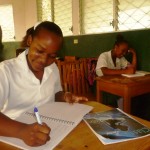
“I want to become a doctor,” says Macrina Marie Sambola Pondler with a bright smile. The 17-year old is the second of four children of an unemployed couple living in the South Atlantic Autonomous Region (RAAS) in Nicaragua. There was a time when Macrina’s dream would have been impossible.
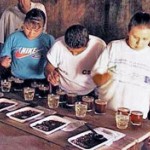
Lexania Marín is a self-described coffee addict, who has been drinking coffee all her life. Now she gets to do it for a living.
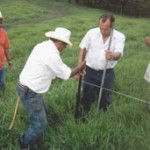
Since 1996, USAID has funded the Farmer to Farmer Program to support Nicaragua's dairy industry by improving milk production, conservation, storage, processing and commercialization.
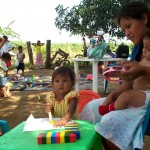
On a large padded blanket spread out on the ground, infants lie amongst brightly colored plastic blocks, their mothers dangling toys within their reach. Nearby, toddlers sit at colorful tables connecting blocks or drawing with markers and crayons. They are at the home of Josefina Garcia, participating in an early childhood stimulation program supported by USAID. Twice a week, mothers from the small rural community of La Tejana, Nicaragua, bring their children to Josefina's home, which offers some of the children their only chance to play with toys. Under this program, USAID provides assistance to more than 21,000 families in communities across Nicaragua that are identified as high risk for malnutrition and infant mortality. The complementary food provides an incentive for families to come to the Casa, where they receive counseling on how to improve their diets, especially when the child is ill or undernourished.
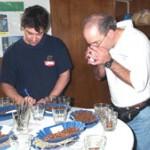
With a glut of low quality coffee saturating the world market, coffee prices have plummeted, but the specialty and organic markets, which often pay more than double the price of conventional coffee, offer Nicaragua’s small farmers one way to increase their incomes.








Comment
Make a general inquiry or suggest an improvement.